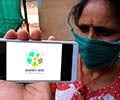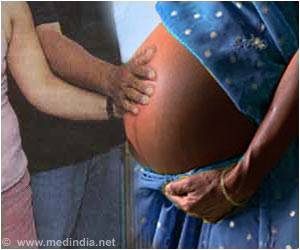Late diagnosis and delayed treatment initiation remain significant challenges in India's fight against cancer.
- Late cancer diagnosis in India leads to higher mortality and treatment costs
- Government insurance schemes help but need better preventive coverage
- Improved awareness, screenings, and infrastructure are key to combating cancer
In 2022, India recorded over 9 lakh cancer deaths due to delayed diagnosis and treatment. #cancercare #medindia’
Problem of Late Diagnosis of Cancer in India
Of all the threats that cancer patients face in India, the main concern is that cancer is usually diagnosed at an advanced stage. These delays deeply affect treatment prospects, and increase mortality and economic costs. From the research study “Access to timely cancer treatment initiation in India” from Pritam Halder et al published in The Lancet Regional Health Southeast Asia it is evident that delayed diagnosis is a major cause of death due to cancer in India. The country estimated more than 9 lakh cancer deaths incidences in the year 2022 only (2✔ ✔Trusted SourceComprehensive value-based cancer care in India: Opportunities for systems strengthening
Go to source).
Late diagnosis often leads to the progression, or "upstaging," of the disease, which is associated with:
- Increased treatment complications.
- Higher healthcare expenditures.
- Poorer patient outcomes.
Factors Contributing to Late Diagnosis of Cancer in India
1. Fear and StigmaDespite the efforts, cancer is still considered a dreaded and taboo illness in most Indian families. Ignorance of initial signs, accompanied by cultural beliefs, becomes a barrier to early treatment-seeking behavior.
2. Limited Access to Healthcare
A significant proportion of the population of India cannot afford or does not have access to good hospitals. Especially the rural population suffers from a lack of specialized diagnostic centers and oncologists.
3. High Costs of Treatment
Sometimes, diagnostic services are available; however, the costs can be very high. This often deters early screening, because most people opt not to seek professional help, given/fear the costs involved.
4. Socio-Demographic Crisis:
It occurs due to an overburdened health care system. India’s healthcare delivery system has a high burden and thus patients are often delayed in getting diagnosed or treated. The general population still has to wait long hours for appointments and diagnostic examinations.
5. Lack of Routine Screenings
Mass cancer control measures such as annual cancer check-ups which are essential in early diagnosis are not practiced in India. Whereas in developed countries, screening tests are routine in healthcare, India is behind in translating such plans on a massive scale. Patients often face long waiting times for appointments and diagnostic tests.
Will a Government Health Insurance Card Help Reduce Cancer Incidence?
India has come up with different government health insurance policies including the Ayushman Bharat policy to encourage the expansion of the health sector. These programs are designed to help persons of less ability to afford their healthcare and increase their health-seeking behavior. However, the study by Pritam Halder et al. sheds light on some gaps (1✔ ✔Trusted SourceAccess to timely cancer treatment initiation in India: extent, determinants and trends
Go to source).
Though patients’ treatment expenses are paid via government health insurance, modalities concerning prevention such as screenings are not well underlined. This has the disadvantage of not promoting their usefulness in decreasing the rate of late detection. The extent as well as effective implementation of Health Insurance schemes differs in these states. Some of the states have achieved better results, nevertheless the others face problems with weak infrastructures and minimal awareness.
A large number of potential consumers remain uninformed of the existing government healthcare insurance. It therefore results in under implementation of these schemes due to a lack of adequate information. This in turn slows down the beginning of the care beneficiaries.
The fight against cancer in India is still on, nevertheless, there exists hope for controlling this kill in case the key factors that lead to the late presentation are fought, and government-backed health insurance options are optimally used. Interestingly, there is an awareness, infrastructure, and policy level; which if done properly can slowly start the journey of bringing down the cancer mortality rates and improving the quality of life among the patient group.
It is definite that cancer is a dangerous enemy, but if one starts fighting with it early, it can be defeated.
References:
- Access to timely cancer treatment initiation in India: extent, determinants and trends - (https://www.thelancet.com/journals/lansea/article/PIIS2772-3682(24)00164-1/fulltext)
- Comprehensive value-based cancer care in India: Opportunities for systems strengthening - (https://pmc.ncbi.nlm.nih.gov/articles/PMC9131774/)
Source-Medindia















